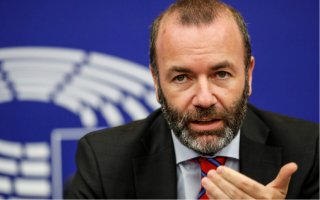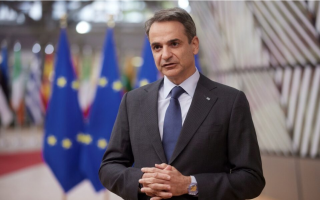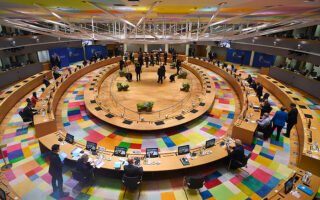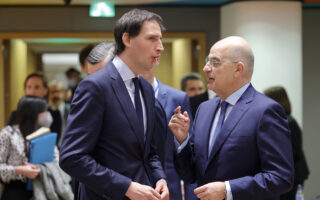Russia’s gas supply to Europe at risk as rouble deadline nears
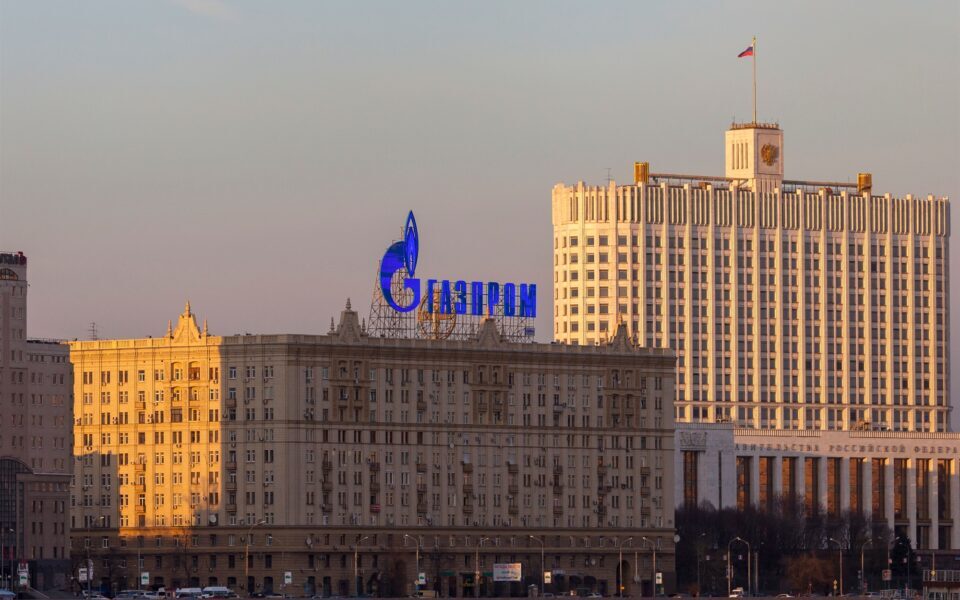
Russia said it would work out practical arrangements by Thursday for foreign companies to pay for its gas in roubles, raising the probability of supply disruptions as Western nations have so far rejected Moscow’s demand for a currency switch.
President Vladimir Putin’s order last week to charge “unfriendly” countries in roubles for Russian gas has boosted the currency after it fell to all-time lows when the West imposed sweeping sanctions against Moscow over its invasion of Ukraine.
“No one will supply gas for free, it is simply impossible, and you can pay for it only in roubles,” Kremlin spokesperson Dmitry Peskov told reporters on Tuesday.
The move has drawn strong criticism from European countries, which pay for Russian gas mostly in euros and say Russia is not entitled to redraw contracts, with the G7 nations rejecting Moscow’s demands this week.
European wholesale gas prices have made further gains this week on concerns about supply stopping.
Russia has so far met its contractual obligations for gas supplies to Europe.
Peskov said that in line with a March 31 deadline set by Putin, “all modalities are being developed so that this system is simple, understandable and feasible for respected European and international buyers.”
But G7 countries have called upon companies not to accede to rouble payments and that most gas supply contracts stipulate euro or US dollar payments.
“That’s a position that we share, that our energy Commissioner subscribed to,” a European Commission spokesperson said at a news conference in Brussels on Tuesday.
The European Union is assessing a scenarios including a full halt to Russian gas supplies next winter, as part of its contingency planning for supply shocks, the European Commission said last week.
Damage
Europe gets around 40% of its gas from Russia. Imports were at around 155 billion cubic metres (bcm) last year.
Putin’s demand has stoked fears in Germany, Europe’s top economy, about major disruptions to gas supplies should utilities fail to pay in roubles, and how this would affect industry and households.
Without Russian gas supplies the German economy would suffer “massive damages, which should be avoided if in any way possible,” E.ON Chief Executive Leonhard Birnbaum told German TV news programme Tagesthemen, adding that the country would need three years to become independent of Russian gas.
Germany’s gas network regulator will prioritize use for heating in residential housing over industrial use, which would cause energy hungry manufacturers such as steelmakers to bear the initial brunt of any supply cuts, he said.
Data from Gas Infrastructure Europe shows EU gas storage levels stand at 26% currently, highlighting the challenge to replace Russia as an energy provider.
The European Commission has proposed legislation requiring EU countries to fill their gas storage to at least 80% this year.
Markus Krebber, CEO of Germany’s largest utility RWE and a customer of Gazprom, said earlier this a complete stop of Russian gas imports could only be tolerated for a very brief period.
Last week, the United States and EU struck a deal for the United States to supply 15 bcm of liquefied natural gas (LNG) this year, which would not alone be able to fully replace Russian gas imports.
Peskov said that Russia, which says it is conducting a “special military operation” in Ukraine and is entitled to defend itself against sanctions, has been and will be a reliable supplier of gas.
But foreign companies would need to buy roubles and use them to make payments for gas, he added.
Separately, Valentina Matviyenko, the speaker of the upper house of parliament, said Russia was ready if Europe refused to buy Russian energy supplies.
If that happened, it could redirect supplies to Asian markets among others, TASS news agency quoted her as saying.
Russian gas deliveries to Europe through three key pipeline routes were broadly steady overall on Tuesday morning, little changed from Monday evening.
[Reuters]
